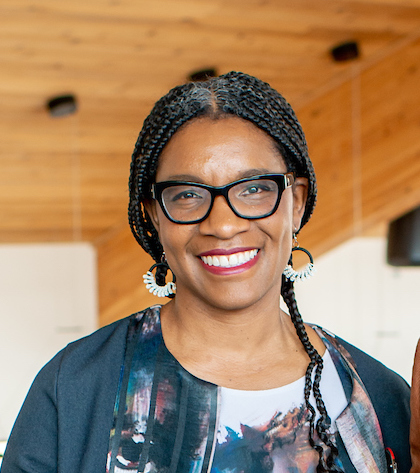A Message from Director Erika George
 Dear Tanner Humanities Community,
Dear Tanner Humanities Community,
I hope my message finds you and yours safe and well. As the world continues to confront
the challenges and changes caused by the novel Coronavirus (COVID-19), we at the Tanner
Humanities Center continue to keep you in our thoughts.
It has been six months since the World Health Organization (WHO) declared a global
pandemic in March 2020. Click here for more. At the time, WHO reported, 118,000 documented cases in 114 different countries, and
4,291 people had lost their lives. Globally, as of September 2020, there have been
27,032,617 confirmed cases, including 881,464 deaths, reported to WHO. The Utah Department
of Health has documented 55,033 total cases and 423 deaths from COVID-19 as of September
2020.
Beyond these alarming numbers, I’ve noticed that different narratives have served
to guide and in some instances misguide how we as a society have adjusted and adapted
during these times of uncertainty. Government response to COVID-19 crisis has been
slow and inadequate in certain countries. The shock to the global economy is projected
to be seismic with a prolonged economic slowdown expected. The pandemic has surfaced
underlying structural and systemic inequalities. It has unearthed the harsh reality
of racism—inequality has become more difficult to ignore due to significant racial
disparities in COVID-19 death rates and discriminatory enforcement of pandemic-related
movement restrictions around the world. Yet, several countries have demonstrated that
the virus can be suppressed and controlled. Some countries have even managed to change
course and mitigate the cultural, social, and economic consequences of the pandemic.
Author Arundhati Roy has observed that pandemics force humanity “to break with the
past and imagine their world anew.” I do see the pandemic as a doorway to something
different. We have a powerful opportunity in this moment to think differently about
ourselves, our relationship to others, and our place in the world. On the other side
of this we will do things differently. We have a responsibility to reimagine a better
new world. Our narratives—personal and public—can make a difference.
While the Tanner Center remains closed to the general public to ensure the safety
of our staff and patrons, this month we share stories of coping with the challenges
of the present moment with you. As I reflect on the toll the pandemic has taken, I’ve
been especially taken by the stunning visual vocabulary of the Capturing COVID photography
project, an initiative by independent local artists who are working to document the
different ways different people in our community have been impacted by the pandemic.
I share their story on collecting stories. Researchers and educators affiliated with
Tanner Humanities are interested in the history of the power of global pandemics to
shift social paradigms. We share their thoughts. We also re-introduce Beth James,
Susan Anderson, and Katie Piula, members of the Tanner Humanities Center team working
to promote humanities research and outreach in collaboration with our community partners.
This month we also welcome our Environmental Humanities Graduate Research Assistant
Hannah Taub. A University of Oregon environmental studies graduate and Phi Beta Kappa
member, Hannah’s honors thesis comparing American and Swedish approaches to public
lands and the rights of indigenous peoples was inspired by time she spent studying
abroad in Denmark.
We value our relationship with you, and we appreciate your support. We look forward
to seeing you again in person. Thank you for being a part of our community. Follow
us on social media for our updates and information on arts and culture activities
available to you online. Please feel free to contact us to share your ideas. We would
love to hear from you.
Sincerely,
Erika George
